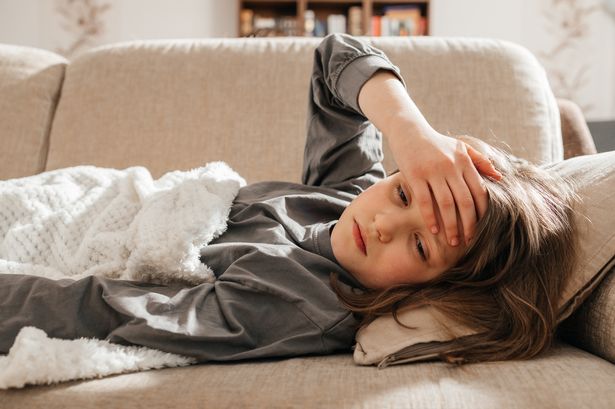World
Parents Urged to Keep Children Home if Chickenpox Symptoms Appear

A medical expert has issued a strong advisory for parents to keep children at home if they exhibit symptoms indicative of chickenpox. Dr. Pallavi Bradshaw, the deputy chief medical officer at AXA Health, emphasized the importance of isolation to prevent the virus from spreading among classmates and the wider community.
This guidance follows the announcement from the NHS that a new vaccination programme will launch in England next year. The initiative aims to provide a combined MMRV (measles, mumps, rubella, and varicella) vaccine during routine general practitioner visits, thereby enhancing protection against chickenpox.
Traditionally, some parents have believed in the benefits of allowing children to contract chickenpox naturally, even organizing “chickenpox parties” to intentionally expose them to the virus. Dr. Bradshaw criticized this practice as “outdated” and noted its potential dangers. “Deliberately exposing children to the chickenpox virus through chickenpox parties is not only an outdated practice but can be extremely dangerous,” she stated.
She further explained that while many cases of chickenpox are mild, the virus can lead to serious complications, including skin infections, pneumonia, and neurological conditions, particularly in children with weakened immune systems.
Recognizing Symptoms and Importance of Isolation
Dr. Bradshaw underscored the need for parents and caregivers to be aware of the symptoms associated with chickenpox. Typically, flu-like symptoms may manifest one to two days before the distinctive rash appears. “It’s essential that all parents and carers can recognize the key symptoms of chickenpox and understand the importance of keeping your child isolated when unwell with the virus,” she noted.
Parents should be vigilant for early signs of chickenpox. If a child is diagnosed, Dr. Bradshaw advises that they should remain at home until they have fully recovered. “Even if your child starts to feel better, they can remain contagious for up to a week after the rash first appears,” she explained. Children should be kept out of school and away from public spaces until they stop developing new spots and all blisters have crusted over.
Vaccination as the Best Defense
Dr. Bradshaw reiterated that vaccination is the most effective means of safeguarding children against chickenpox. She views the government’s forthcoming vaccination programme as a vital step in promoting children’s health. “Vaccination is the most effective way to protect children against chickenpox, so the government’s new programme is a vital step in safeguarding children’s health,” she asserted.
As the nation awaits the rollout of this critical vaccination initiative, parents are encouraged to familiarize themselves with the symptoms of chickenpox and the risks associated with unregulated exposure. By doing so, they can play an active role in protecting not only their children but also those around them from this highly contagious virus.
-

 Health3 months ago
Health3 months agoNeurologist Warns Excessive Use of Supplements Can Harm Brain
-

 Health3 months ago
Health3 months agoFiona Phillips’ Husband Shares Heartfelt Update on Her Alzheimer’s Journey
-

 Science2 months ago
Science2 months agoBrian Cox Addresses Claims of Alien Probe in 3I/ATLAS Discovery
-

 Science2 months ago
Science2 months agoNASA Investigates Unusual Comet 3I/ATLAS; New Findings Emerge
-

 Science1 month ago
Science1 month agoScientists Examine 3I/ATLAS: Alien Artifact or Cosmic Oddity?
-

 Entertainment2 months ago
Entertainment2 months agoLewis Cope Addresses Accusations of Dance Training Advantage
-

 Entertainment5 months ago
Entertainment5 months agoKerry Katona Discusses Future Baby Plans and Brian McFadden’s Wedding
-

 Science1 month ago
Science1 month agoNASA Investigates Speedy Object 3I/ATLAS, Sparking Speculation
-

 Entertainment4 months ago
Entertainment4 months agoEmmerdale Faces Tension as Dylan and April’s Lives Hang in the Balance
-

 World3 months ago
World3 months agoCole Palmer’s Cryptic Message to Kobbie Mainoo Following Loan Talks
-

 Science1 month ago
Science1 month agoNASA Scientists Explore Origins of 3I/ATLAS, a Fast-Moving Visitor
-

 Entertainment4 months ago
Entertainment4 months agoMajor Cast Changes at Coronation Street: Exits and Returns in 2025









